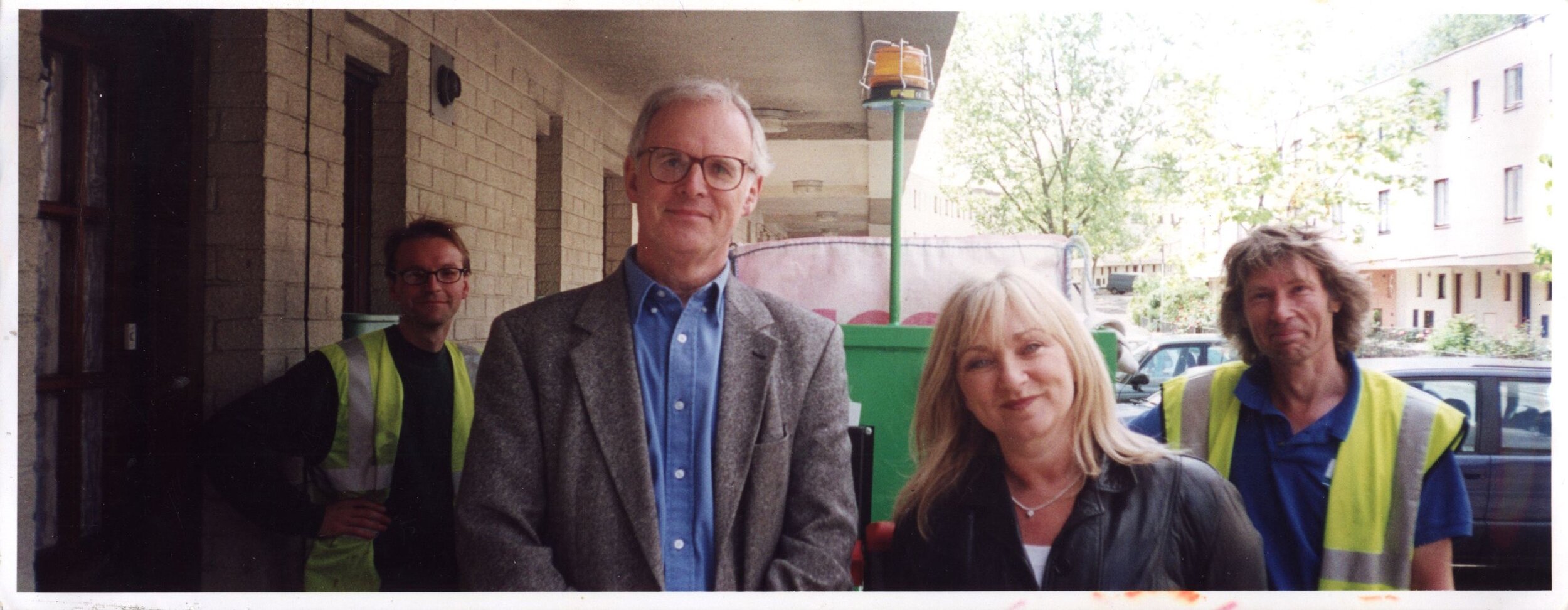London’s Alternative Waste Strategy, 1998-2006
By Nicky Gavron
Robin would never claim anything for himself, but there are few people who have had such a profound impact on environmental thinking in London and far beyond.
In the mid 1990s, as chair of the London Planning Advisory Committee (LPAC) I was asked by John Gummer, then Secretary of State for the Environment, to come up with an alternative strategy to dumping London's waste in landfill in the South East. Miraculously, I met Robin at just this moment. He had just come back from Canada where he had been working on community economic development projects with the progressive Ontario Government.
Robin had a vision of ‘zero waste’ - and recruited wonderful people like Keith Collins and Kathy Killinger to make it happen. The vision was: everything that is designed and created can be reused, repaired, recycled. Robin involved me in his unique way of approaching a problem. He worked systemically. Everything was reframed – and then reframed again from another perspective. For him, refuse collectors became recyclers, waste a valuable resource, and citizens sorting their own rubbish were part of the production line. This is productive democracy and Robin was passionate about it.
Everything had to be tested on the ground. There were no dry reports, only action research. And the results were spectacular! He gave us the economic case for high recycling rates in London, coupled with an industrial strategy, stimulating demand and supply simultaneously. As a result, John Gummer, who really ‘got’ Robin’s vision, gave us £12m to kick-start household recycling, jobs and industries across London. This work took place under the banner of the London Pride Waste Action partnership, which as chair of LPAC, I co-chaired with Sir Allen Sheppard, chair of London First. Robin and his team went on to work across the country and recycling rates exploded.
Although it never achieved its full potential in terms of waste industries, it did kick start recycling in London and generated a lot of jobs. And out of this work came a seminal report and Demos’ best-selling publication Creating Wealth from Waste. Only now with the growing interest in the circular economy, particularly in Europe, are we beginning to realise Robin’s vision of zero waste.
Robin Murray taking part in the BBC TV programme, Have You Ever Wondered?
In 2000 with Ken Livingstone at the helm of London once again, there were new opportunities to innovate. Robin and I worked together on the Mayor’s climate change agency to cut carbon and to pioneer new green technologies. The idea was to create a new kind of vehicle, working closely with the private sector, enabling London government to be both entrepreneurial whilst de-risking the enterprise for both partners.
Robin believed in a distributed, decentralised approach to everything. So, at the heart of this was a concept of a distributed network of local energy generation and the piloting of new technologies, which has subsequently been a major influence on the London plan policy. This was productive democracy at work; a network of citizens and communities producing their own power, not reliant on the grid and making London more resilient.
Once the agency was established, with its cohort of engineers, Robin was commissioned to initiate the agency's green homes programme, for the ‘able to pay’ sector. This was an idea cross-fertilized from Canada with Phil Jessup, the founder of the Toronto atmospheric agency. Phil was seconded to us by the Mayor of Toronto to work with us on developing the Mayor of London’s climate change agency.
Robin astounded us with his practical action on greening London’s homes. Again, this was startlingly innovative and although Robin was disappointed to see all this work abandoned under the next administration, today, the legacy and experience of that work could not be more relevant.
Robin and I suffered many slings and arrows together, but he always battled with a smile – totally disarming. At many different spheres of government, he always spoke truth to power - “straight as an arrow, clear as a bell”.
He was happy to work with and speak to anyone at any level. Every conversation with him on the phone was a gift. He would always tell you about the latest person he’d met or the latest idea he’d had, before he would meticulously go on to help us solve the latest problem.
In his last great conversation with me in his study, he said something that I now realise had underpinned his whole being. “We propose, not oppose.”
These lines by the poet Marianne Moore remind me of Robin:
I may, I might, I must
If you will tell me why the fen
appears impassable, I then
will tell you why I think that I
can get across it if I try.
Robin emboldened us to try. I owe him a great debt. And so, does London.
August 2019
